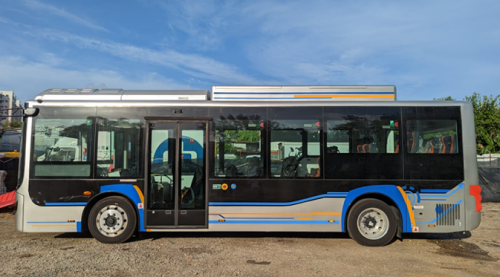
The development of advanced fully electric bus technology has emerged as a pivotal solution for sustainable urban public transit. Municipalities worldwide are grappling with the detrimental impacts of vehicle emissions and fossil fuel consumption. In response, the transition towards zero-emission electric bus has gained significant momentum in recent years, driven by breakthroughs in battery system design, improved energy efficiency, and a growing commitment to decarbonizing transportation networks.
To address these environmental challenges globally, a project is undertaken to develop an advanced 28-seat fully electric bus incorporating a range of features. The key objective of this project is to design a lightweight, low-floor vehicle equipped with artificial intelligence driver assistance system and geofencing equipment. Featuring a low-entry floor design to facilitate easy wheelchair access, the electric bus incorporates a lightweight aluminum alloy body construction that optimizes energy efficiency and extends the driving range of vehicles. The modular battery system with the outfire can adapt to various energy capacity requirements of different applications while ensuring safety. Moreover, it is equipped with AI Enhanced ADAS which can detect potential collisions with frontal vehicles and pedestrians by giving audio alerts to drivers to enhance road safety, and it also incorporates an AI Geofencing system to automatically adjust the speed-limit based on the vehicle location to prevent overspending.
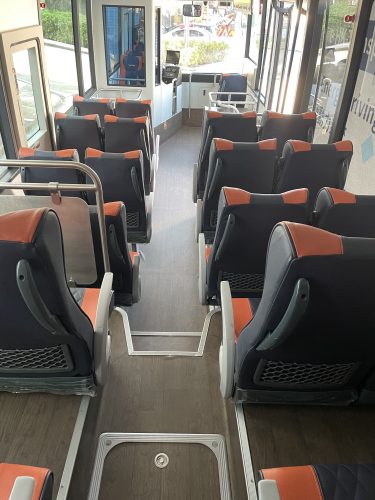

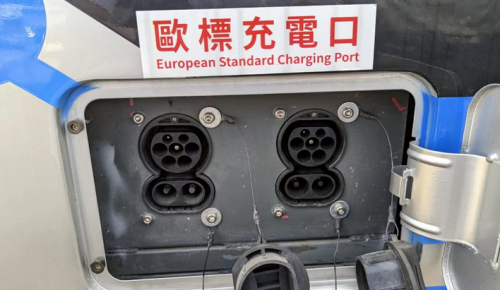
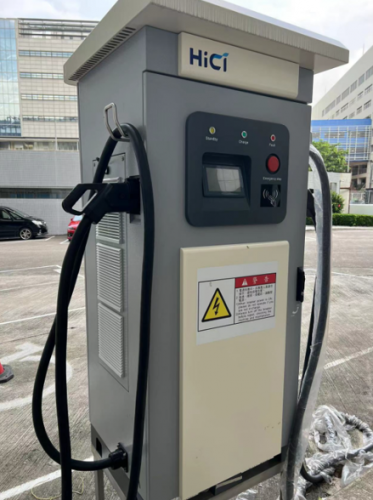

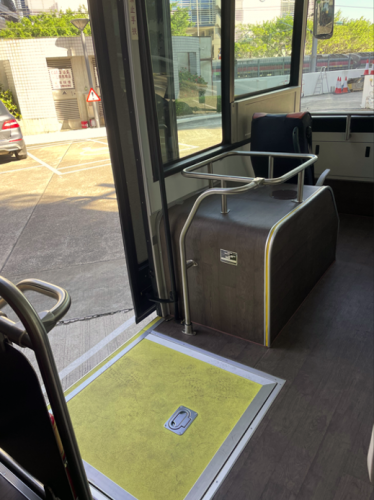
The fully electric bus proposed by this project will promote the popularization of new energy vehicles, reduce pollutant emissions from urban transportation, and make more contributions to global carbon reduction and sustainable development.
Range: 350-400 km
Charging time: 0.5h/100km
Production status: In production
(Innovativeness)
The innovativeness of this project lies in several key areas:
1, Modular Battery System: this 28-seat fully electric bus is equipped with a 255kWh modular battery system, allowing for flexible battery capacity configurations to suit different vehicle application scenarios. This modularity enables customization and optimization of the battery capacity, enhancing the versatility of the e-bus.
2, Lightweight Body Design: The e-bus features a lightweight body design, which not only improves its overall range but also reduces energy consumption. This design innovation contributes to the e-bus’s efficiency and sustainability.
3, Low-entry Floor Design: The e-bus project incorporates a low-entry floor design, utilizing a specially developed low-entry chassis to accommodate the electrified powertrain system. This design innovation significantly improves accessibility, allowing easy boarding for elderly passengers and individuals requiring wheelchair access. The low-entry floor feature enhances inclusivity and ensures a comfortable and convenient experience for all passengers with mobility challenges.
4, Dual-Gun DC Charging Design: The inclusion of a 160kW dual-gun DC charging equipment addresses the challenge of charging infrastructure. With this high-power charging capability, the e-bus can be fully recharged within 1.5 to 2 hours, making it one of the fastest charging options available in the market. This feature significantly reduces downtime and increases the operational efficiency of the bus.
5, Artificial Intelligence Driving Assistance System: The inclusion of an artificial intelligence driving assistance system enhances overall safety. It provides pre-collision warnings, thereby reducing the risk of accidents. This innovative feature improves the passenger experience and instills confidence in the reliability of the e-bus.
6, Geographic Fence Device: The e-bus is equipped with a geographic fence device that offers real-time speed limit information. This feature ensures that the vehicle maintains safe driving speeds, reducing the likelihood of accidents. It also promotes adherence to local traffic regulations and enhances road safety.
Through comprehensive market research and analysis, the e-bus project has identified key advantages over competitive products in terms of passenger capacity and mileage extension. Notably, it offers the shortest charging time of 1.5 to 2 hours among its competitors. Furthermore, the e-bus exceeds a climbing capability of 20%, enabling it to navigate diverse driving environments. These innovations effectively address the growing demand for sustainable and efficient public transportation, significantly enhancing the project’s competitiveness and attractiveness.
These benefits will facilitate collaboration with public transport operators and promote the integration of electric vehicles into green transportation. As the adoption of electric buses increases, a low-carbon economic city has become a trend and will be realized in the future.
(Inspiration) This project serves as an inspiration for the design and development of new energy vehicles in the future. The incorporation of features such as a lightweight body, low floor design, modular battery, and intelligent assistant driving system can provide advanced design concepts and solutions for fully electric buses. The impact of this project extends beyond its immediate scope, inspiring advancements in the field of green transportation.
(Clearness) The project is an innovative 28-seat fully electric bus based on the “Smart Mobility” proposal of the “Hong Kong Smart City Blueprint” report. Moreover, the HKPC has its own portal and media platform accounts such as Facebook and Instagram, to actively engage with the public and openly receive feedback and suggestions. This transparent approach ensures that public opinions are valued and incorporated throughout the project’s development.
(Practicability) The prototype of the 28-seat fully electric bus has been successfully developed, and initial product trials and feedback sessions have been conducted with potential customers. The bus can be charged in 1.5 hours and can travel 350-400 kilometers on a full charge. And it will be planned to be industrialized and put into market use after a two-year trial run.
(Replicability) The bus is equipped with an intelligent assistance system that will improve driving safety and can be widely used in other vehicles. At the same time, the charging equipment solutions provided by the project can also be applied internationally.
(Cost-effectiveness) In contrast to the large amount of exhaust emissions produced by traditional fuel vehicles during driving, the carbon emissions of fully electric vehicles are generated at the power end. Following the transition to electrification, carbon emissions are reduced by approximately 15% to 20% compared to the fuel-powered counterparts. Besides, the 28-seat bus can greatly increase the passenger capacity than common minibus, improve the efficiency of public transport operation, reduce the cost of transport operation and improve the cost-effectiveness.
(Consistency) The project is in line with the energy policy and strategy. The fully electric bus can achieve energy saving and carbon reduction. As a public organization, the HKPC will continue to promote the application of this project.
(Completeness) The 28-seat fully electric bus participated in the 2022 International Trade Fair on Environmental Protection Exhibition in Hong Kong and has been well received.
(Verifiability) The bus is equipped with a 255kwh modular battery and 160 kW double-gun DC charging equipment to achieve fast charging, with a climbing capacity of more than 20%.
(Impact) The project’s fully electric and lightweight design enables energy saving and carbon reduction, making a significant impact in the field of energy and the environment. The project has the potential to influence multiple areas. Apart from urban public transportation, the proposed 28-seat fully electric bus can also serve as a shuttle bus or tour bus for hotels, airports, and tourist attractions. This versatile application expands the project’s reach and offers sustainable transportation solutions beyond traditional urban settings.
(JUST TRANSITION) The project promotes inclusivity and equal access for individuals with disabilities and wheelchair users through its low-floor design. This design feature facilitates boarding and disembarking for everyone, including those with limited mobility, ensuring their ease and convenience while using the bus.